Discover The Peter McCormack Show
The Peter McCormack Show

1008 Episodes
Reverse
Carl Benjamin is a political commentator and cultural critic. This discussion focuses on diagnosis — not slogans — and on understanding consequences before they arrive. Young men aren't radicalising because of ideology, they're reacting to a world that no longer works for them. In this conversation with Carl Benjamin, we break down why the post-war consensus has collapsed, why politics feels illegitimate and why a generation feels pushed to the edge. In this episode we discuss: – Why young men feel shut out of the system – The collapse of the post-WWII consensus – Piers Morgan, Nick Fuentes, and generational revolt – Identity politics vs material reality – Legitimacy, consent, and non-compliance – Why politics no longer fixes anything – What happens when power has no limits – Why discomfort is unavoidable - - - - - - - - - - - - - - - - - - - - - - - - - - - - - - - - - - - - - - - - - - - - - - - - - - TIMESTAMPS: 00:04:18 – Why Young Men Feel Politically Homeless 00:11:42 – Moral Outrage vs Material Reality 00:19:27 – Why Figures Like Nick Fuentes Resonate 00:27:53 – Identity Politics and Manufactured Resentment 00:36:41 – Media Incentives and the Outrage Economy 00:48:12 – Piers Morgan, Debate Culture, and Spectacle 01:01:08 – Loss of Legitimacy in Institutions 01:15:18 – What Happens if Nothing Changes 01:32:44 – Generational Breaking Point 01:35:21 – Final Warnings and Consequences - - - - - - - - - - - - - - - - - - - - - - - - - - - - - - - - - - - - - - - - - - - - - - - - - - CONTACT PETE › Website – http://petermccormack.com › Feedback – https://www.petermccormack.com/contact › Email – me@petermccormack.com › Instagram – /mccormack555 › X/Twitter – https://x.com/petermccormack/ CONNECT WITH CARL BENJAMIN › Website – https://lotuseaters.com/ › Twitter – https://x.com/Sargon_of_Akkad SPONSORS › IREN - https://www.iren.com/ › Ledger - https://www.ledger.com/ › Gemini - https://gemini.com/ - - - - - - - - - - - - - - - - - - - - - - - - - - - - - - - - - - - - - - - - - - - - - - - - - - LISTEN / SUBSCRIBE › Apple Podcasts: https://apple.co/40ruY9K › Spotify: https://spoti.fi/3Wc94Vu › Fountain: https://bit.ly/FountainPM › YouTube: https://bit.ly/YouTube_PM › Rumble: https://bit.ly/RumblePM FILMED BY CURTIS TAYLOR › https://www.curttaylor.co.uk/ › https://x.com/curttayloruk/ EDITED BY CONOR MCCORMACK › https://x.com/ConorM04 - - - - - - - - - - - - - - - - - - - - - - - - - - - - - - - - - - - - - - - - - - - - - - - - - -
I've reached an inflection point. I no longer believe Britain's political system can fix itself. This isn't about left vs right, Labour vs Conservative, or the next election. It's about unconstrained power, broken incentives and a system that rewards failure while hollowing out the next generation. In this PMQs episode, I explain why I'm withdrawing my consent from the British state and why so many young people have already done the same. This isn't apathy. It's a vote of no confidence. In this episode: – Why politicians care about only one thing: staying in power – How unconstrained government creates inevitable failure – The collapse of trust in institutions – Why young people feel betrayed by the system – Nick Fuentes, Piers Morgan & generational revolt – Why Reform and the Greens are the same phenomenon – The moral failure of intergenerational debt – Why Britain needs limits on power, not new parties SHOW NOTES › https://substack.com/@petermccormack › https://x.com/PiersUncensored/status/1998127009981947930 › http://youtube.com/watch?v=UiAhS7AuB8k › https://www.youtube.com/watch?v=nkK312fMPsQ&t=3814s › https://www.youtube.com/watch?v=7TEnJ5pyFDg › https://graceblakeley.substack.com/p/generation-despair CONTACT PETE › Website - http://petermccormack.com › Feedback - https://www.petermccormack.com/contact › Email - me@petermccormack.com › Instagram - /mccormack555 › X/Twitter - https://x.com/petermccormack/ SPONSORS › IREN - https://www.iren.com/ › Ledger - https://www.ledger.com/ › Gemini - https://gemini.com/ - - - - - - - - - - - - - - - - - - - - - - - - - - - - - - - - - - - - TIMESTAMPS: 00:00 – I've Reached an Inflection Point 02:06 – Why All Governments Are Set to Fail 05:43 – The One Thing All Politicians Care About 08:23 – Nick Fuentes, Piers Morgan & Moral Outrage 12:43 – Why Young People Don't Care Anymore 19:18 – Collapse of Institutional Trust 24:24 – We Sold the Future to Avoid Recessions 27:10 – The Rise of Reform & the Greens Explained 30:44 – Withdrawing Consent from the State 45:13 – Why Britain Needs Limits on Power - - - - - - - - - - - - - - - - - - - - - - - - - - - - - - - - - - - - LISTEN / SUBSCRIBE TO THE PODCAST › Apple Podcasts: https://apple.co/40ruY9K › Spotify: https://spoti.fi/3Wc94Vu › Fountain: https://bit.ly/FountainPM › YouTube: https://bit.ly/YouTube_PM › Rumble: https://bit.ly/RumblePM FILMED BY CURTIS TAYLOR › https://www.curttaylor.co.uk/ › https://x.com/curttayloruk/ EDITED BY CONOR MCCORMACK › https://x.com/ConorM04 - - - - - - - - - - - - - - - - - - - - - - - - - - - - - - - - - - - -
Mike Green is a macro strategist known for his work on market structure, benchmark distortions, passive flows and systemic fragility. A single benchmark shaped American markets and policy for decades and economist Mike Green believes it distorted risk, inflated asset prices, weakened the middle class and misled policymakers about the true state of the economy. In this conversation, he breaks down how a flawed model became accepted as truth, how it quietly rewired incentives, and why he thinks the consequences are now impossible to ignore. In this episode we discuss: – What the "broken benchmark" actually is – How flawed assumptions shaped U.S. economic policy – Why markets mispriced risk for decades – The rise of passive flows and distorted price signals – How asset inflation hurt the middle class – Why housing affordability collapsed – Why policymakers didn't correct the model – The structural consequences for future generations – Whether America can fix the system without a crisis – How the UK is importing the same benchmark problems - - - - - - - - - - - - - - - - - - - - - - - - - - - - - - - - - - - - - - - - - - - - - - - - - - TIMESTAMPS: 00:00:00 – How a Benchmark Became a National Problem 00:16:24 – The Rise of Passive Flows & Market Distortion 00:32:18 – Why America Misprices Risk 00:48:05 – Asset Inflation & the Middle-Class Squeeze 01:04:22 – Housing, Debt & Structural Fragility 01:19:57 – Why Policymakers Didn't Fix the Benchmark 01:36:44 – Elites, Incentives & the Illusion of Prosperity 01:53:30 – The UK's Imported Benchmark Problem 02:10:42 – What a Saner Benchmark Would Look Like 02:27:15 – Future Scenarios & Final Thoughts - - - - - - - - - - - - - - - - - - - - - - - - - - - - - - - - - - - - - - - - - - - - - - - - - - CONTACT PETE › Website – http://petermccormack.com › Feedback – https://www.petermccormack.com/contact › Email – me@petermccormack.com › Instagram – /mccormack555 › X/Twitter – https://x.com/petermccormack/ CONNECT WITH MIKE GREEN › Website – https://www.simplify.us › Twitter – https://x.com/profplum99 › Substack – https://substack.com/@michaelwgreen SPONSORS › IREN - https://www.iren.com/ › Ledger - https://www.ledger.com/ › Gemini - https://gemini.com/ - - - - - - - - - - - - - - - - - - - - - - - - - - - - - - - - - - - - - - - - - - - - - - - - - - LISTEN / SUBSCRIBE › Apple Podcasts: https://apple.co/40ruY9K › Spotify: https://spoti.fi/3Wc94Vu › Fountain: https://bit.ly/FountainPM › YouTube: https://bit.ly/YouTube_PM › Rumble: https://bit.ly/RumblePM FILMED BY CURTIS TAYLOR › https://www.curttaylor.co.uk/ › https://x.com/curttayloruk/ EDITED BY CONOR MCCORMACK › https://x.com/ConorM04
Modern economics is built on competing theories that often describe the world in very different ways. In this conversation, economist Steve Keen sets out his explanation for how money works, why he believes mainstream economic models fail, and why debt, banking and housing play a far greater role in economic crises than most policymakers acknowledge. Keen's perspective challenges the assumptions of neoclassical, Keynesian and Austrian economists alike. In this episode we discuss: – How economics became political ideology – Why neoclassical theory broke the West – The Left vs Right illusion in economic policy – What money really is (and how banks actually create it) – Why inflation is misunderstood by almost everyone – How private debt fuels instability and inequality – Housing, mortgages & the destruction of the middle class – Why equilibrium economics is fantasy – What a sane, reality-based economic model looks like – How young people can survive a debt-driven system Economics didn't fail by accident — it failed because ideology replaced reality. Steve Keen is one of the world's leading heterodox economists, known for his critiques of mainstream theory and his work on private debt, banking, financial instability and the 2008 crisis, which he warned about years in advance. - - - - - - - - - - - - - - - - - - - - - - - - - - - - - - - - - - - - - - - - - - - - - - - - - - TIMESTAMPS: 00:00:00 – Introduction 00:03:12 – Why Economics Became Ideology 00:09:04 – Economists vs Reality 00:14:47 – How Money Actually Works 00:21:18 – Banks, Loans & Money Creation 00:33:44 – Inflation: What Really Drives It 00:38:59 – Wages, Markups & Bargaining Power 00:47:55 – The Housing Crisis Explained 00:54:03 – Deregulation & the Death of Affordability 00:59:22 – Middle Class Collapse 01:04:48 – Left and Right Get Economics Wrong 01:11:02 – Neoclassical Economics 01:17:26 – The Problem With Economic Models 01:22:31 – Why Economists Misunderstand Production 01:28:08 – AI, Automation & The Future of Work 01:44:28 – Structural Failures 01:55:46 – Can Government Use Good Economics? 02:01:23 – Global Debt, Fragility & Future Crises 02:06:40 – What Would Real Reform Look Like? 02:13:28 – Why Young Generations Feel Hopeless 02:19:47 – Can We Build a Post-Ideological Economics? 02:25:10 – Final Thoughts - - - - - - - - - - - - - - - - - - - - - - - - - - - - - - - - - - - - - - - - - - - - - - - - - - CONTACT PETE › Website – http://petermccormack.com › Feedback – https://www.petermccormack.com/contact › Email – me@petermccormack.com › Instagram – /mccormack555 › X/Twitter – https://x.com/petermccormack/ CONNECT WITH STEVE KEEN › Website – https://www.patreon.com/ProfSteveKeen › Twitter – https://x.com/profstevekeen SPONSORS › IREN - https://www.iren.com/ › Ledger - https://www.ledger.com/ › Gemini - https://gemini.com/ - - - - - - - - - - - - - - - - - - - - - - - - - - - - - - - - - - - - - - - - - - - - - - - - - - LISTEN / SUBSCRIBE › Apple Podcasts: https://apple.co/40ruY9K › Spotify: https://spoti.fi/3Wc94Vu › Fountain: https://bit.ly/FountainPM › YouTube: https://bit.ly/YouTube_PM › Rumble: https://bit.ly/RumblePM FILMED BY CURTIS TAYLOR › https://www.curttaylor.co.uk/ › https://x.com/curttayloruk/ EDITED BY CONOR MCCORMACK › https://x.com/ConorM04 - - - - - - - - - - - - - - - - - - - - - - - - - - - - - - - - - - - - - - - - - - - - - - - - - -
Inflation isn't an economic metric — it's a political tactic. When governments lie about inflation, they're not miscalculating; they're stealing from you. Economist Karl-Friedrich Israel explains how inflation quietly enriches asset holders, punishes workers and pushes Europe into a slow, silent decline. If your living standards are falling while politicians insist everything is fine, this conversation will make sense of it. If you still believe governments can print prosperity without consequences, you won't enjoy what follows. In this episode we discuss: – How inflation secretly taxes the poor – Why CPI hides the real cost of living – Europe's long, slow economic decay – The rise of modern socialism – Cronyism vs capitalism – Collective corruption of elites – Why asset inflation fuels inequality – The Argentina warning – Whether Bitcoin can fix the money – AI, automation & the coming labour shock Britain is being lied to — and people are finally waking up. Karl-Friedrich Israel is a German economist specialising in monetary policy, inflation and inequality. His work reveals the economic mechanisms accelerating Europe's decline. - - - - - - - - - - - - - - - - - - - - - - - - - - - - - - - - - - - - - - - - - - - - - - - - - - TIMESTAMPS: 00:00:00 – The Inflation Lie 00:06:21 – CPI vs Real Cost of Living 00:12:13 – Inequality: What's Legit, What Isn't 00:14:02 – Why Socialism Is Surging Again 00:19:34 – Inflation as Political Illusion 00:24:10 – Welfare, Dependence & the Trap 00:26:47 – Argentina, Milei & Monetary Chaos 00:33:16 – Should We Abolish Central Banks? 00:37:21 – Europe's Coming Decline 00:53:59 – Brain Drain & the Death of Opportunity 00:58:07 – Academia's Ideological Capture 01:23:02 – AI, Job Loss & the Future Economy 01:39:19 – Bitcoin, Freedom & The Path Forward - - - - - - - - - - - - - - - - - - - - - - - - - - - - - - - - - - - - - - - - - - - - - - - - - - CONTACT PETE › Website – http://petermccormack.com › Feedback – https://www.petermccormack.com/contact › Email – me@petermccormack.com › Instagram – /mccormack555 › X/Twitter – https://x.com/petermccormack/ CONNECT WITH KARL-FRIEDRICH ISRAEL › Website – https://kfisrael.com/ SPONSORS › IREN - https://www.iren.com/ › Ledger - https://www.ledger.com/ › Gemini - https://gemini.com/ - - - - - - - - - - - - - - - - - - - - - - - - - - - - - - - - - - - - - - - - - - - - - - - - - - LISTEN / SUBSCRIBE › Apple Podcasts: https://apple.co/40ruY9K › Spotify: https://spoti.fi/3Wc94Vu › Fountain: https://bit.ly/FountainPM › YouTube: https://bit.ly/YouTube_PM › Rumble: https://bit.ly/RumblePM FILMED BY CURTIS TAYLOR › https://www.curttaylor.co.uk/ › https://x.com/curttayloruk/ EDITED BY CONOR MCCORMACK › https://x.com/ConorM04 - - - - - - - - - - - - - - - - - - - - - - - - - - - - - - - - - - - - - - - - - - - - - - - - - -
James Esses is a psychotherapist and former Childline volunteer who was expelled from his degree and blacklisted by his profession for opposing gender ideology. He now works with young people suffering from gender dysphoria and is one of the UK's most articulate defenders of reality, safeguarding and children's rights. CONTACT PETE › Website - http://petermccormack.com › Feedback - https://www.petermccormack.com/contact › Email - me@petermccormack.com › Instagram - /mccormack555 › X/Twitter - https://x.com/petermccormack/ CONNECT WITH JAMES ESSES › X/Twitter - https://x.com/JamesEsses › Website - https://jamesesses.com/ - - - - - - - - - - - - - - - - - - - - - - - - - - - - - - - - - - - - TIMESTAMPS: 00:00:00 – Introduction 00:03:45 – The Trans Industry 00:08:00 – Medicalisation vs Exploration 00:12:30 – What Puberty Blockers Really Do 00:16:00 – The Clinics & the Profits 00:20:30 – Transitioning Is Not Treatment 00:25:00 – Adults vs Children 00:30:00 – From Self-Hate to Sterilisation 00:34:30 – Schools, Indoctrination & DEI 00:39:00 – Media Collusion 00:44:15 – Language Wars: Women, Men & Meaning 00:48:00 – Identity as Trend 00:52:00 – Asexuality & Porn Addiction 01:00:30 – The Role of the Therapist 01:04:00 – Transition as Self-Harm 01:09:00 – What Should Be Banned 01:14:30 – De-Transitioning & Regret 01:19:00 – Stereotypes, Confusion & Pressure 01:23:00 – Media Gaslighting & The BBC 01:27:00 – Dangers of the Conversion Therapy Ban 01:31:00 – Why This Isn't Over - - - - - - - - - - - - - - - - - - - - - - - - - - - - - - - - - - - - LISTEN / SUBSCRIBE TO THE PODCAST › Apple Podcasts: https://apple.co/40ruY9K › Spotify: https://spoti.fi/3Wc94Vu › Fountain: https://bit.ly/FountainPM › YouTube: https://bit.ly/YouTube_PM › Rumble: https://bit.ly/RumblePM FILMED BY CURTIS TAYLOR › https://www.curttaylor.co.uk/ › https://x.com/curttayloruk/ EDITED BY CONOR MCCORMACK › https://x.com/ConorM04 - - - - - - - - - - - - - - - - - - - - - - - - - - - - - - - - - - - -
Angela McArdle is the former Chair of the US Libertarian Party and a leading voice in the global liberty movement. In this conversation, we explore the ideological war raging beneath the surface: between those who want freedom and those who want control. CONTACT PETE › Website - http://petermccormack.com › Feedback - https://www.petermccormack.com/contact › Email - me@petermccormack.com › Instagram - /mccormack555 › X/Twitter - https://x.com/petermccormack/ CONNECT WITH ANGELA MCARDLE › X/Twitter - https://x.com/RealAngelaMc SPONSORS › IREN - https://www.iren.com/ › Ledger - https://www.ledger.com/ › Gemini - https://gemini.com/ › Cape - https://www.cape.co/ - - - - - - - - - - - - - - - - - - - - - - - - - - - - - - - - - - - - TIMESTAMPS: 00:00:00 – Introduction 00:03:20 – UK's Tax Exodus & Class Divide 00:08:00 – Identity Politics to Class Warfare 00:10:20 – Third-Party Strategy & Trump Deal 00:15:40 – Mises Caucus & RFK 00:22:00 – Free Ross Ulbricht 00:27:30 – Charlie Kirk's Death 00:32:00 – US Cities in Decline 00:38:30 – NHS vs Private Care Models 00:45:00 – Bitcoin, Financial Freedom & State Control 00:49:40 – Operation Choke Point 2.0 00:54:00 – Tornado Cash & Criminalising Code 01:00:00 – Free Speech & Privacy 01:04:30 – Ian Freeman's Case 01:10:00 – COVID as Control, Not Health 01:14:00 – Civil Liberties Are Dying 01:18:00 – The Cold War: Freedom vs Free Stuff 01:24:00 – Guns, Rights & Self Defence 01:30:00 – Liberty's, Future & the 2028 Plan - - - - - - - - - - - - - - - - - - - - - - - - - - - - - - - - - - - - LISTEN / SUBSCRIBE TO THE PODCAST › Apple Podcasts: https://apple.co/40ruY9K › Spotify: https://spoti.fi/3Wc94Vu › Fountain: https://bit.ly/FountainPM › YouTube: https://bit.ly/YouTube_PM › Rumble: https://bit.ly/RumblePM FILMED BY CURTIS TAYLOR › https://www.curttaylor.co.uk/ › https://x.com/curttayloruk/ EDITED BY CONOR MCCORMACK › https://x.com/ConorM04 - - - - - - - - - - - - - - - - - - - - - - - - - - - - - - - - - - - -
The third episode of PMQs is here. Peter McCormack breaks down how political lies, from manifestos to media narratives, create decline across generations. He dismantles Rachel Reeves' gaslighting, Keir Starmer's child poverty lies, the failure of party politics and why trust in democracy is collapsing. SHOW NOTES › https://www.youtube.com/watch?v=rDOsm-CYUwQ › https://x.com/JamesMelville/status/1994278043137761412 › https://x.com/Nigel_Farage/status/1993966404354101428 › https://x.com/SkyNews/status/1995089190481248354 CONTACT PETE › Website - http://petermccormack.com › Feedback - https://www.petermccormack.com/contact › Email - me@petermccormack.com › Instagram - /mccormack555 › X/Twitter - https://x.com/petermccormack/ SPONSORS › IREN - https://www.iren.com/ › Ledger - https://www.ledger.com/ › Gemini - https://gemini.com/ - - - - - - - - - - - - - - - - - - - - - - - - - - - - - - - - - - - - TIMESTAMPS: 00:01:30 - Rachel Reeves Misleading the Public 00:05:02 - Keir Starmer's Lies 00:08:24 - Labour's Broken Manifesto Promises 00:10:10 - Rachel Reeves' Gaslighting the Public 00:18:05 - Four Lies Buys a Generation of Decline 00:20:05 - Will Reform be any Different 00:26:28 - Every Election's Biggest Lie is "Change" 00:31:37 - Building a Better Future for our Kids 00:38:48 - Inflation is Destructive 00:41:54 - Proposal for Structural Change 00:46:58 - Sleepwalking into Authoritarianism 00:52:51 - Accountability for Politicians - - - - - - - - - - - - - - - - - - - - - - - - - - - - - - - - - - - - LISTEN / SUBSCRIBE TO THE PODCAST › Apple Podcasts: https://apple.co/40ruY9K › Spotify: https://spoti.fi/3Wc94Vu › Fountain: https://bit.ly/FountainPM › YouTube: https://bit.ly/YouTube_PM › Rumble: https://bit.ly/RumblePM FILMED BY CURTIS TAYLOR › https://www.curttaylor.co.uk/ › https://x.com/curttayloruk/ EDITED BY CONOR MCCORMACK › https://x.com/ConorM04 - - - - - - - - - - - - - - - - - - - - - - - - - - - - - - - - - - - -
Labour's second budget is here and it's another full-blown tax raid. They've hit workers again, squeezed savers again, blown up the welfare bill again and still delivered nothing for business, growth or the people who actually drive the economy. If you earn, save, build or invest, Labour just came back for round two: punishing work, killing incentives and pushing the UK deeper into decline. SHOW NOTES › https://x.com/rachelreevesmp/status/1993575889817268537?s=48 › https://x.com/benobesejecty/status/1991933898667036730?s=48 › https://x.com/DOGE__news/status/1940926027800498248/video/1 CONTACT PETE › Website - http://petermccormack.com › Feedback - https://www.petermccormack.com/contact › Email - me@petermccormack.com › Instagram - /mccormack555 › X/Twitter - https://x.com/petermccormack/ SPONSORS › IREN - https://www.iren.com/ › Ledger - https://www.ledger.com/ › Gemini - https://gemini.com/ - - - - - - - - - - - - - - - - - - - - - - - - - - - - - - - - - - - - TIMESTAMPS: 00:00 – Budget Day Introduction 03:07 – Rachel Reeves Big Day 06:25 – What Labour Did in Their First Budget 10:00 – Breaking Manifesto Pledges 14:14 – Inflation: Why the Poor Get Poorer 16:09 – Record Borrowing - £370m per Day 20:00 – Destructive Budget Delays 23:03 – Keir Starmer is a Wet Wipe 31:00 – Post-Budget Reaction ("Trojan horse?") 37:21 – The Authoritarian Budget 47:40 – Kemi's Takedown 54:48 – Viewer Questions - - - - - - - - - - - - - - - - - - - - - - - - - - - - - - - - - - - - LISTEN / SUBSCRIBE TO THE PODCAST › Apple Podcasts: https://apple.co/40ruY9K › Spotify: https://spoti.fi/3Wc94Vu › Fountain: https://bit.ly/FountainPM › YouTube: https://bit.ly/YouTube_PM › Rumble: https://bit.ly/RumblePM FILMED BY CURTIS TAYLOR › https://www.curttaylor.co.uk/ › https://x.com/curttayloruk/ EDITED BY CONOR MCCORMACK › https://x.com/ConorM04 - - - - - - - - - - - - - - - - - - - - - - - - - - - - - - - - - - - -
Peter Bleksley is a former undercover detective, crime author and one of Britain's most outspoken critics of modern policing. In this conversation, we unpack why trust has collapsed, crime has surged and what it will really take to fix British policing. CONTACT PETE › Website - http://petermccormack.com › Feedback - https://www.petermccormack.com/contact › Email - me@petermccormack.com › Instagram - /mccormack555 › X/Twitter - https://x.com/petermccormack/ CONNECT WITH PETER BLEKSLEY › X/Twitter - https://x.com/PeterBleksley SPONSORS › IREN - https://www.iren.com/ › Ledger - https://www.ledger.com/ › Gemini - https://gemini.com/ › Casa - https://casa.io/ › Cape - https://www.cape.co/ - - - - - - - - - - - - - - - - - - - - - - - - - - - - - - - - - - - - TIMESTAMPS: 00:00:00 – Introduction 00:06:00 – Visible, Known, Trusted Policing 00:09:45 – Why No One Reports Crime 00:13:20 – How Bureaucracy Killed Policing 00:17:30 – Police Abandoned the Frontline 00:20:30 – Shoplifting, Drugs & Public Fear 00:26:00 – Women on the Frontline Debate 00:31:00 – Taser Policy, Safety & Reality 00:35:00 – Bureaucracy vs Evidence Gathering 00:40:00 – Informants, Surveillance & Undercover Work 00:45:20 – Why the PCC System Failed 00:50:00 – Sentencing, Prisons & Rehabilitation 00:55:00 – What's Wrong With Young Men? 01:00:00 – Outsourcing, Work Ethic & Minimum Wage 01:05:00 – Softness, Victimhood & State Expansion 01:10:00 – Indoctrination, Education & Marxism 01:15:00 – Immigration, Integration & Crime Concerns 01:20:00 – Political Class Is Failing Britain 01:25:00 – When Was Britain Last Better? 01:30:00 – What Would Fix Policing? 01:35:00 – Final Thoughts - - - - - - - - - - - - - - - - - - - - - - - - - - - - - - - - - - - - LISTEN / SUBSCRIBE TO THE PODCAST › Apple Podcasts: https://apple.co/40ruY9K › Spotify: https://spoti.fi/3Wc94Vu › Fountain: https://bit.ly/FountainPM › YouTube: https://bit.ly/YouTube_PM › Rumble: https://bit.ly/RumblePM FILMED BY CURTIS TAYLOR › https://www.curttaylor.co.uk/ › https://x.com/curttayloruk/ EDITED BY CONOR MCCORMACK › https://x.com/ConorM04 - - - - - - - - - - - - - - - - - - - - - - - - - - - - - - - - - - - -
In this solo episode, Peter breaks from the usual interview format to deliver an honest take on the state-of-the-nation. From the collapse of political discourse to the rise of Reform and the Greens, from inflation's hidden wealth transfer to why young people are turning to socialism, Peter lays out the British Doom Loop - how taxes, stagnation and inflation keep feeding each other while the political class pretends everything's fine. CONTACT PETE › Website - http://petermccormack.com › Feedback - https://www.petermccormack.com/contact › Email - me@petermccormack.com › Instagram - /mccormack555 › X/Twitter - https://x.com/petermccormack/ SPONSORS › IREN - https://www.iren.com/ › Ledger - https://www.ledger.com/ › Gemini - https://gemini.com/ › Casa - https://casa.io/ - - - - - - - - - - - - - - - - - - - - - - - - - - - - - - - - - - - - LISTEN / SUBSCRIBE TO THE PODCAST › Apple Podcasts: https://apple.co/40ruY9K › Spotify: https://spoti.fi/3Wc94Vu › Fountain: https://bit.ly/FountainPM › YouTube: https://bit.ly/YouTube_PM › Rumble: https://bit.ly/RumblePM FILMED BY CURTIS TAYLOR › https://www.curttaylor.co.uk/ › https://x.com/curttayloruk/ EDITED BY CONOR MCCORMACK › https://x.com/ConorM04 - - - - - - - - - - - - - - - - - - - - - - - - - - - - - - - - - - - -
Shanker Singham is a trade lawyer, competition expert, and one of the UK's most respected economic minds. In this wide-ranging conversation, we unpack why Britain's economy has become uncompetitive, how regulation has locked out innovation and what needs to change. CONTACT PETE › Website - http://petermccormack.com › Feedback - https://www.petermccormack.com/contact › Email - me@petermccormack.com › Instagram - /mccormack555 › X/Twitter - https://x.com/petermccormack/ CONNECT WITH SHANKER SINGHAM › X/Twitter - https://x.com/ShankerASingham SPONSORS › IREN - https://www.iren.com/ › Ledger - https://www.ledger.com/ › Gemini - https://gemini.com/ › Casa - https://casa.io/ › Cape - https://www.cape.co/ - - - - - - - - - - - - - - - - - - - - - - - - - - - - - - - - - - - - TIMESTAMPS: 00:00:00 – Why Economic Policy Matters 00:03:30 – Liberty, Rights & Prosperity 00:07:15 – Regulation Kills Growth 00:10:30 – What GDP Really Measures 00:15:10 – Cronyism vs Real Competition 00:21:00 – Why Government Is Unaccountable 00:25:00 – The Deep State Problem 00:30:00 – How the UK Wasted Brexit 00:35:45 – The Truth About Tariffs 00:41:00 – Trade, Distortions & China 00:45:10 – America's Tariff Strategy Explained 00:52:00 – Why Global Growth Has Slowed 00:58:20 – Education, Economics & Free Markets 01:05:00 – We Don't Teach Liberty 01:10:00 – Language, Truth & Marxism 01:14:00 – Why 'Capitalism' Is a Trap 01:18:30 – Fiat Money vs Voluntary Exchange 01:25:00 – Bitcoin, Inflation & the Fiscal Distortion 01:30:00 – AI, Labor Markets & Collapse 01:36:30 – The Future of Work 01:42:00 – The Philosophy of Prosperity 01:46:30 – Final Thoughts - - - - - - - - - - - - - - - - - - - - - - - - - - - - - - - - - - - - LISTEN / SUBSCRIBE TO THE PODCAST › Apple Podcasts: https://apple.co/40ruY9K › Spotify: https://spoti.fi/3Wc94Vu › Fountain: https://bit.ly/FountainPM › YouTube: https://bit.ly/YouTube_PM › Rumble: https://bit.ly/RumblePM FILMED BY CURTIS TAYLOR › https://www.curttaylor.co.uk/ › https://x.com/curttayloruk/ EDITED BY CONOR MCCORMACK › https://x.com/ConorM04 - - - - - - - - - - - - - - - - - - - - - - - - - - - - - - - - - - - -
Paul M. Sutter is a theoretical cosmologist, astrophysicist and author who takes the biggest questions of existence. From the origins of the universe to the limits of human understanding. His ability to connect abstract physics with everyday curiosity turns complex science into something emotional, philosophical and unforgettable. CONTACT PETE › Website - http://petermccormack.com › Feedback - https://www.petermccormack.com/contact › Email - me@petermccormack.com › Instagram - /mccormack555 › X/Twitter - https://x.com/petermccormack/ CONNECT WITH EWEN STEWART › X/Twitter - https://x.com/TheGrowthComm SPONSORS › IREN - https://www.iren.com/ › Ledger - https://www.ledger.com/ › Gemini - https://gemini.com/ › Casa - https://casa.io/ - - - - - - - - - - - - - - - - - - - - - - - - - - - - - - - - - - - - TIMESTAMPS: 00:00:00 – Introduction 00:03:00 – What Is the Universe? 00:08:40 – Observable vs True Size 00:12:00 – The Shape of Reality 00:16:00 – The Cosmic Web 00:21:30 – Dark Matter & Evidence 00:40:00 – What Is a Particle? 00:44:00 – Quantum Fields & Reality 00:46:00 – Why Does It All Work? 00:57:00 – Are We Alone? 01:02:00 – The Goldilocks Problem 01:08:00 – The Wow Signal 01:15:00 – Biosignatures & James Webb 01:20:00 – Life Beyond Earth 01:28:00 – Getting to Mars 01:36:00 – Why Mars Is So Hard 01:48:00 – Is The Money Worth It? 01:53:00 – Alien Theories & Avi Loeb 01:58:00 – Comets vs Asteroids 02:01:00 – Science as Human Meaning 02:04:00 – Final Thoughts - - - - - - - - - - - - - - - - - - - - - - - - - - - - - - - - - - - - LISTEN / SUBSCRIBE TO THE PODCAST › Apple Podcasts: https://apple.co/40ruY9K › Spotify: https://spoti.fi/3Wc94Vu › Fountain: https://bit.ly/FountainPM › YouTube: https://bit.ly/YouTube_PM › Rumble: https://bit.ly/RumblePM FILMED BY CURTIS TAYLOR › https://www.curttaylor.co.uk/ › https://x.com/curttayloruk/ EDITED BY CONOR MCCORMACK › https://x.com/ConorM04 - - - - - - - - - - - - - - - - - - - - - - - - - - - - - - - - - - - -
Ewen Stewart is one of the UK's sharpest economic thinkers. In this conversation, we unpack what's gone wrong, from bloated welfare and debt-fuelled decline to brain drain, overregulation, collapsing growth and the cultural death spiral hollowing out the UK. CONTACT PETE › Website - http://petermccormack.com › Feedback - https://www.petermccormack.com/contact › Email - me@petermccormack.com › Instagram - /mccormack555 › X/Twitter - https://x.com/petermccormack/ CONNECT WITH EWEN STEWART › X/Twitter - https://x.com/TheGrowthComm SPONSORS › IREN - https://www.iren.com/ › Ledger - https://www.ledger.com/ › Gemini - https://gemini.com/ › Casa - https://casa.io/ - - - - - - - - - - - - - - - - - - - - - - - - - - - - - - - - - - - - TIMESTAMPS: 00:00:00 – Introduction 00:05:00 – Growth Collapse Since 2008 00:07:17 – Austerity Was a Myth 00:10:00 – Quangos, Control & Chaos 00:17:58 – Brain Drain & Stagnation 00:20:39 – The Rich Are Leaving 00:23:01 – Lessons From Ireland 00:25:51 – Britain's Last Assets 00:27:15 – What Killed Entrepreneurship 00:30:54 – Can We Cut the State? 00:33:30 – BBC, Civil Service & Pushback 00:35:48 – Reform Needs a Plan 00:38:40 – Spending Cuts & Tax Strategy 00:41:00 – Employment Law Is Killing Jobs 00:50:12 – Sound Money & Tax Cuts 00:52:55 – Energy Prices Are Killing Industry 00:56:25 – The Civil Service Is Unaccountable 01:10:30 – Culture, Decay & the Death Spiral 01:13:00 – What Sound Money Really Means 01:16:30 – Why Keynesianism Dominates Everything 01:21:00 – Why We Need a Counter-Revolution 01:26:00 – Hope, Talent & the 11th Hour 01:29:40 – Britain's Economic Identity Crisis 01:38:30 – Why No One Wants Growth 01:42:00 – Final Thoughts - - - - - - - - - - - - - - - - - - - - - - - - - - - - - - - - - - - - LISTEN / SUBSCRIBE TO THE PODCAST › Apple Podcasts: https://apple.co/40ruY9K › Spotify: https://spoti.fi/3Wc94Vu › Fountain: https://bit.ly/FountainPM › YouTube: https://bit.ly/YouTube_PM › Rumble: https://bit.ly/RumblePM FILMED BY CURTIS TAYLOR › https://www.curttaylor.co.uk/ › https://x.com/curttayloruk/ EDITED BY CONOR MCCORMACK › https://x.com/ConorM04 - - - - - - - - - - - - - - - - - - - - - - - - - - - - - - - - - - - -
Ant Middleton is a Special Forces veteran, author, and former SAS: Who Dares Wins star. He joins the show for a conversation about identity, violence, service, and what's gone wrong in Britain. From his military career and time in prison to his rise in the media and now politics, Ant lays out why he feels a duty to serve again — this time as Mayor of London. CONTACT PETE › Website - http://petermccormack.com › Feedback - https://www.petermccormack.com/contact › Email - me@petermccormack.com › Instagram - /mccormack555 › X/Twitter - https://x.com/petermccormack/ CONNECT WITH ANT MIDDLETON › X/Twitter - https://x.com/antmiddleton SPONSORS › IREN - https://www.iren.com/ › Ledger - https://www.ledger.com/ › Gemini - https://gemini.com/ › Casa - https://casa.io/ › Cape - https://www.cape.co/ - - - - - - - - - - - - - - - - - - - - - - - - - - - - - - - - - - - - TIMESTAMPS: 00:00:00 – Introduction 00:04:36 – Violence, Aggression & Mastery 00:11:16 – Freedom, Fear & State Control 00:16:45 – Multiculturalism vs British Culture 00:25:00 – The Discipline Deficit 00:30:22 – Sadiq Khan, Grooming Gangs & Denial 00:36:45 – Failure, Ego & Accountability 00:41:00 – Serving the Public Again 00:45:30 – Three Pillars of Trust 00:50:12 – Tax, Control & Silent Partners 00:57:30 – Why Business Is Broken 01:03:00 – How to Win in Politics 01:07:00 – Civil Unrest & the Line to Violence 01:12:30 – Victimhood vs Self-Mastery 01:18:00 – Excellence, Ego & Daily Debrief 01:22:00 – Service, Sacrifice & Family 01:28:00 – Brining London's Energy Back 01:30:25 – Closing Thoughts - - - - - - - - - - - - - - - - - - - - - - - - - - - - - - - - - - - - LISTEN / SUBSCRIBE TO THE PODCAST › Apple Podcasts: https://apple.co/40ruY9K › Spotify: https://spoti.fi/3Wc94Vu › Fountain: https://bit.ly/FountainPM › YouTube: https://bit.ly/YouTube_PM › Rumble: https://bit.ly/RumblePM FILMED BY CURTIS TAYLOR › https://www.curttaylor.co.uk/ › https://x.com/curttayloruk/ EDITED BY CONOR MCCORMACK › https://x.com/ConorM04 - - - - - - - - - - - - - - - - - - - - - - - - - - - - - - - - - - - -
Tom Slater is the editor of Spiked, one of the most important voices in the UK free speech movement. We cover: – Why free speech is collapsing in Britain – The absurdity of arresting 30+ people a day for tweets – The rise of soft censorship & speech policing – Why Labour has abandoned the working class – Illegal immigration, NGO rackets & the new elite – The failure of the police – Why we need direct democracy and state decentralisation – The case for cultural renewal and citizen power CONTACT PETE › Website - http://petermccormack.com › Feedback - https://www.petermccormack.com/contact › Email - me@petermccormack.com › Instagram - /mccormack555 › X/Twitter - https://x.com/petermccormack/ CONNECT WITH TOM SLATER › X/Twitter - https://x.com/Tom_Slater_ SPONSORS › IREN - https://www.iren.com/ › Ledger - https://www.ledger.com/ › Gemini - https://gemini.com/ › Casa - https://casa.io/ › Incogni - https://incogni.com/peter - - - - - - - - - - - - - - - - - - - - - - - - - - - - - - - - - - - - TIMESTAMPS: 00:00:00 – Introduction 00:03:45 – State Overreach & Free Speech 00:13:10 – Labour's Class Betrayal 00:17:55 – NGO Rackets & Migration 00:22:47 – Hotel Contracts & Public Anger 00:26:38 – Crime, Housing & Council Collapse 00:31:14 – Police Don't Stop Crime 00:36:30 – 30 Arrests a Day for Tweets 00:40:45 – Real Free Speech Cases 00:46:02 – NHS, Rackets & Reform 00:51:00 – Can We Save Policing? 00:56:00 – Speech Laws, Censorship & Culture 01:00:40 – Why the Public Are Right 01:06:10 – Direct Democracy 01:11:00 – Councils & Local Control 01:15:00 – Media Bias 01:18:15 – The Political Class Is Finished 01:23:00 – Can Reform Deliver? 01:28:00 – Why Free Speech Still Matters 01:32:30 – The Middle-Class Protection Racket 01:36:45 – Cultural Decay & Cowardice 01:40:10 – Final Thoughts - - - - - - - - - - - - - - - - - - - - - - - - - - - - - - - - - - - - LISTEN / SUBSCRIBE TO THE PODCAST › Apple Podcasts: https://apple.co/40ruY9K › Spotify: https://spoti.fi/3Wc94Vu › Fountain: https://bit.ly/FountainPM › YouTube: https://bit.ly/YouTube_PM › Rumble: https://bit.ly/RumblePM FILMED BY CURTIS TAYLOR › https://www.curttaylor.co.uk/ › https://x.com/curttayloruk/ EDITED BY CONOR MCCORMACK › https://x.com/ConorM04 - - - - - - - - - - - - - - - - - - - - - - - - - - - - - - - - - - - -
Zia Yusuf returns to the show for a follow-up on where Britain is going and how Reform UK plans to fix it. We cover: – Why Britain is no longer investable – The flight of wealth & what it means for services – Immigration, sectarian politics & cultural decline – Why reform needs real power – Energy policy & net zero – A first principles approach to taxation, debt & GDP – What Reform's economic plan focuses on – Whether Zia will run for Parliament CONTACT PETE › Website - http://petermccormack.com › Feedback - https://www.petermccormack.com/contact › Email - me@petermccormack.com › Instagram - /mccormack555 › X/Twitter - https://x.com/petermccormack/ CONNECT WITH ZIA YUSUF › X/Twitter - https://x.com/ZiaYusufUK SPONSORS › IREN - https://www.iren.com/ › Ledger - https://www.ledger.com/ › Gemini - https://gemini.com/ › Casa - https://casa.io/ › Incogni - https://incogni.com/peter - - - - - - - - - - - - - - - - - - - - - - - - - - - - - - - - - - - - TIMESTAMPS: 00:00:00 – Introduction 00:02:54 – Green Party & Cultural Decline 00:04:53 – The Collapse of Labour Strongholds 00:10:07 – Preparing for Government 00:11:30 – One Shot to Fix Britain 00:16:18 – Mass Immigration, No Integration 00:19:32 – Why the Rich Are Leaving 00:21:54 – Law, Safety & Taxpayer Rage 00:24:46 – AI, Inequality & Asset Owners 00:27:20 – The Energy Cost Disaster 00:29:17 – Why Wealth Creation Matters 00:31:46 – The Global Market for Wealth 00:34:08 – Normalising Decline in Britain 00:36:15 – The Prison Space Crisis 00:41:57 – Deficit Spending & Money Printing 00:47:00 – Net Zero, Fuel Bills & Growth 00:51:00 – GDP vs GDP Per Capita 00:53:12 – Building an Investable Country 00:59:42 – SEND Costs & No Local Control 01:06:00 – The Democratic Deficit in Councils 01:08:03 – State Reform & Voter Power 01:14:26 – Will Zia Run for Parliament? 01:16:26 – Closing Thoughts - - - - - - - - - - - - - - - - - - - - - - - - - - - - - - - - - - - - LISTEN / SUBSCRIBE TO THE PODCAST › Apple Podcasts: https://apple.co/40ruY9K › Spotify: https://spoti.fi/3Wc94Vu › Fountain: https://bit.ly/FountainPM › YouTube: https://bit.ly/YouTube_PM › Rumble: https://bit.ly/RumblePM FILMED BY CURTIS TAYLOR › https://www.curttaylor.co.uk/ › https://x.com/curttayloruk/ EDITED BY CONOR MCCORMACK › https://x.com/ConorM04 - - - - - - - - - - - - - - - - - - - - - - - - - - - - - - - - - - - -
Ian Rogers ran digital at LVMH and worked with everyone from Apple to the Beastie Boys. In this conversation, we dive into culture, technology, politics, and the collapse of the old systems & what might replace them. We explore: – Why education is broken & what should replace it – AI, quantum & disruptive technologies – From state to network: Balaji's thesis and the network future – Creativity, free speech & the failure of mainstream culture – How to raise kids who thrive in chaos – What punk rock teaches us about politics, identity & belonging CONTACT PETE › Website - http://petermccormack.com › Feedback - https://www.petermccormack.com/contact › Email - me@petermccormack.com › Instagram - /mccormack555 › X/Twitter - https://x.com/petermccormack/ CONNECT WITH IAN ROGERS › X/Twitter - https://x.com/iancr SPONSORS › IREN - https://www.iren.com/ › Ledger - https://www.ledger.com/ › Gemini - https://gemini.com/ › Casa - https://casa.io/ › Incogni - https://incogni.com/peter - - - - - - - - - - - - - - - - - - - - - - - - - - - - - - - - - - - - TIMESTAMPS: 00:00:00 – Introduction 00:06:25 – The Algorithm Killed Music 00:16:40 – Why We Made Zines 00:21:03 – How Technology Shapes Culture 00:30:32 – Education Is Now Obsolete 00:35:17 – Teaching Kids to Think 00:41:00 – AI, Quantum & the Unknown 00:47:23 – From State to Network 00:51:55 – Navigating Post-Truth Politics 00:56:10 – Should We Still Go to Uni? 01:05:18 – Network Neighbours vs Real Ones 01:08:42 – Politics, Identity & Belonging 01:14:55 – Left, Right & Free Thinking 01:20:00 – From Curiosity to Courage 01:24:12 – Creativity in the Age of AI 01:29:37 – Fairness, Copyright & Compromise 01:34:50 – Creative UBI & the BBC 01:40:12 – Arbitrary Taxation Might Be OK 01:47:28 – Closing Thoughts: The Case for Hope - - - - - - - - - - - - - - - - - - - - - - - - - - - - - - - - - - - - LISTEN / SUBSCRIBE TO THE PODCAST › Apple Podcasts: https://apple.co/40ruY9K › Spotify: https://spoti.fi/3Wc94Vu › Fountain: https://bit.ly/FountainPM › YouTube: https://bit.ly/YouTube_PM › Rumble: https://bit.ly/RumblePM FILMED BY CURTIS TAYLOR › https://www.curttaylor.co.uk/ › https://x.com/curttayloruk/ EDITED BY CONOR MCCORMACK › https://x.com/ConorM04 - - - - - - - - - - - - - - - - - - - - - - - - - - - - - - - - - - - -
William Clouston returns to the show for a wide-ranging conversation about Britain's decline, from collapsing public services and economic stagnation to mass immigration, energy failure and the breakdown of trust in our institutions. We explore: – Why the UK economy is no longer investable – The energy crisis, net zero myths & failed privatisation – NHS failure & workforce caps – The collapse of public order – The SDP's vision for direct provision & industrial revival – Why Labour can't fix this CONTACT PETE › Website - http://petermccormack.com › Feedback - https://www.petermccormack.com/contact › Email - me@petermccormack.com › Instagram - /mccormack555 › X/Twitter - https://x.com/petermccormack/ CONNECT WITH WILLIAM CLOUSTON › X/Twitter - https://x.com/williamclouston SPONSORS › IREN - https://www.iren.com/ › Ledger - https://www.ledger.com/ › Gemini - https://gemini.com/ › Casa - https://casa.io/ › Incogni - https://incogni.com/peter - - - - - - - - - - - - - - - - - - - - - - - - - - - - - - - - - - - - TIMESTAMPS: 00:00:00 – Introduction 00:06:28 – Britain Is No Longer Investable 00:10:15 – Energy Crisis & Net Zero 00:16:03 – Diversity Quotas 00:20:37 – Government Waste, Grift & Agencies 00:32:45 – Councils Collapsing 00:37:50 – The Doom Loop in Housing 00:51:30 – Broken Incentives 01:03:00 – Policing & Public Safety 01:16:00 – Why the SDP Matters 01:20:00 – Fusion Politics: Red & Blue 01:24:00 – America Feels Hopeful 01:30:34 – The Future of the Right 01:38:42 – Reform, Realignment & Political Conviction 01:44:00 – Social vs Liberal 01:50:45 – What is Economic Nationalism 02:04:00 – The Inflection Point 02:08:20 – Final Thoughts - - - - - - - - - - - - - - - - - - - - - - - - - - - - - - - - - - - - LISTEN / SUBSCRIBE TO THE PODCAST › Apple Podcasts: https://apple.co/40ruY9K › Spotify: https://spoti.fi/3Wc94Vu › Fountain: https://bit.ly/FountainPM › YouTube: https://bit.ly/YouTube_PM › Rumble: https://bit.ly/RumblePM FILMED BY CURTIS TAYLOR › https://www.curttaylor.co.uk/ › https://x.com/curttayloruk/ EDITED BY CONOR MCCORMACK › https://x.com/ConorM04 - - - - - - - - - - - - - - - - - - - - - - - - - - - - - - - - - - - -
In Part 2 of our conversation, Curtis Yarvin covers political decay, Austrian economics and the origins of money and Bitcoin. We explore: – Monarchy as the most honest system of rule – The flaw in free-market libertarianism – Mises vs Keynes vs Friedrich List – What the Austrians got right & wrong – Why personal net worth is the real inflation metric – The theoretical origin of money – Bitcoin vs gold question CONTACT PETE › Website - http://petermccormack.com › Feedback - https://www.petermccormack.com/contact › Email - me@petermccormack.com › Instagram - /mccormack555 › X/Twitter - https://x.com/petermccormack/ CONNECT WITH CURTIS YARVIN › X/Twitter - https://x.com/curtis_yarvin SPONSORS › IREN - https://www.iren.com/ › Ledger - https://www.ledger.com/ › Gemini - https://gemini.com/ › Casa - https://casa.io/ › Incogni - https://incogni.com/peter - - - - - - - - - - - - - - - - - - - - - - - - - - - - - - - - - - - - TIMESTAMPS: 00:00:00 – Introduction 00:05:38 – Farage, Reform & Populism's Trap 00:10:50 – Monarchy as a Political System 00:17:34 – Caesar vs Commodus 00:25:38 – Democracy's Many Failure Modes 00:30:11 – Corporate Governance as Political Metaphor 00:33:25 – Austrian Economics & Intellectual Capture 00:40:32 – System Software & Building Urbit 00:49:29 – Economics as Propaganda 00:54:12 – Why GDP Is a Lie 01:01:07 – Mises vs Keynes 01:05:00 – Mercantilism & Friedrich List 01:09:21 – Personal Net Worth = Inflation 01:14:18 – Bitcoin, Gold & Store of Value 01:24:05 – The Nash Equilibrium of Money 01:30:34 – Why Axes Can't Be Money 01:35:26 – Why Bitcoin Wins 01:38:16 – The Path to Remonetisation 01:46:43 – How Close He Got to Bitcoin 01:50:00 – Final Thoughts - - - - - - - - - - - - - - - - - - - - - - - - - - - - - - - - - - - - LISTEN / SUBSCRIBE TO THE PODCAST › Apple Podcasts: https://apple.co/40ruY9K › Spotify: https://spoti.fi/3Wc94Vu › Fountain: https://bit.ly/FountainPM › YouTube: https://bit.ly/YouTube_PM › Rumble: https://bit.ly/RumblePM FILMED BY CURTIS TAYLOR › https://www.curttaylor.co.uk/ › https://x.com/curttayloruk/ EDITED BY CONOR MCCORMACK › https://x.com/ConorM04 - - - - - - - - - - - - - - - - - - - - - - - - - - - - - - - - - - - -







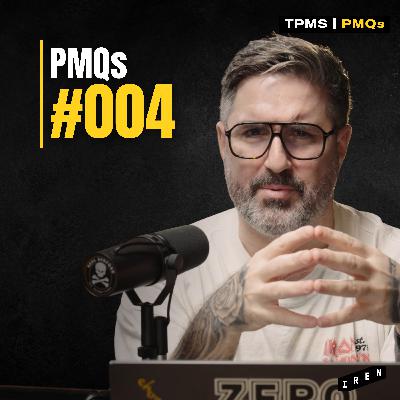
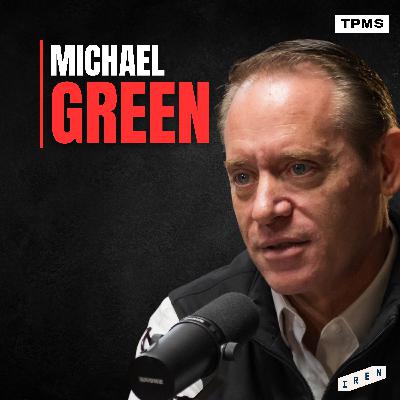
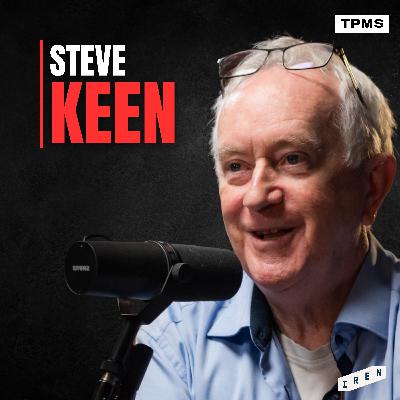
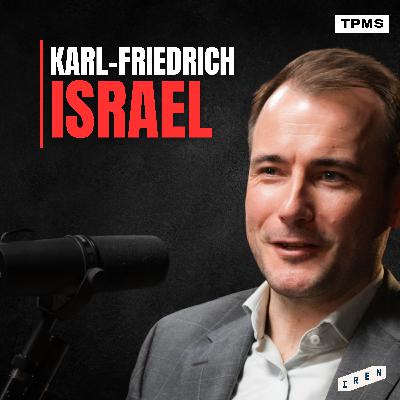
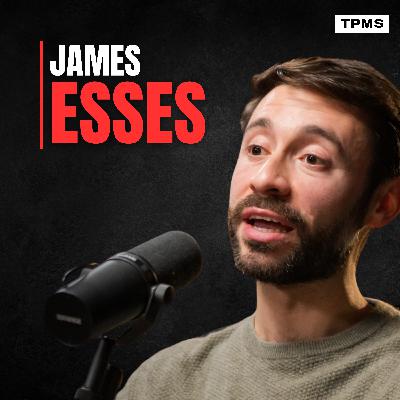


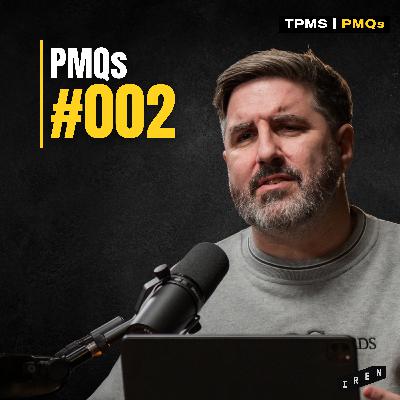
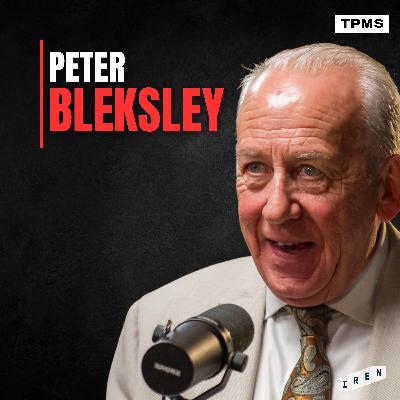
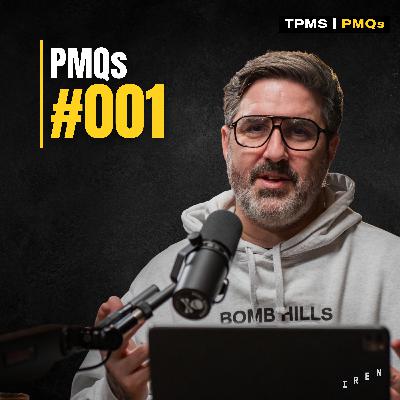

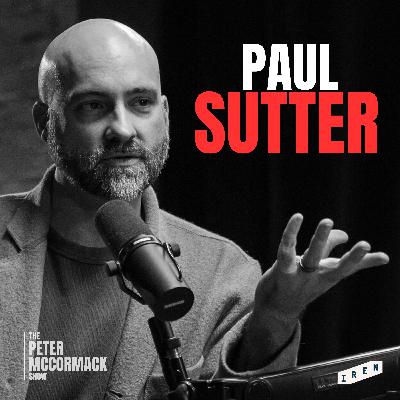
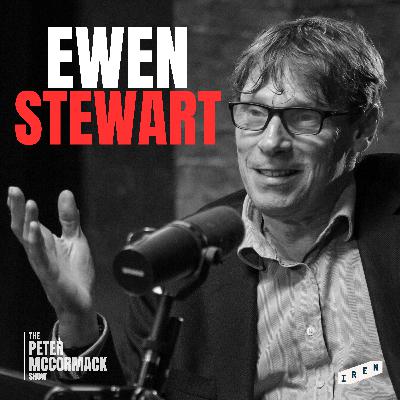
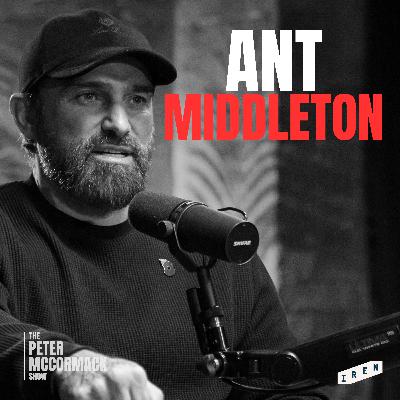
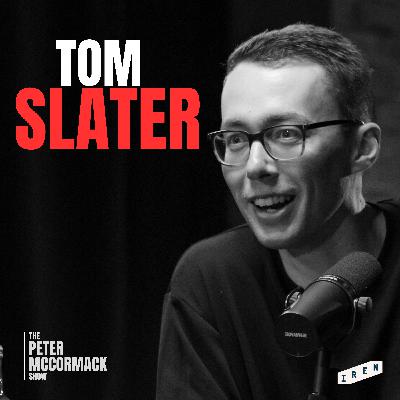


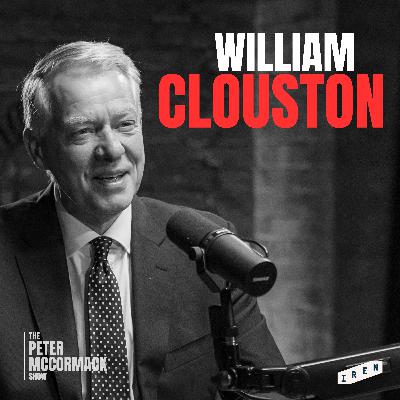
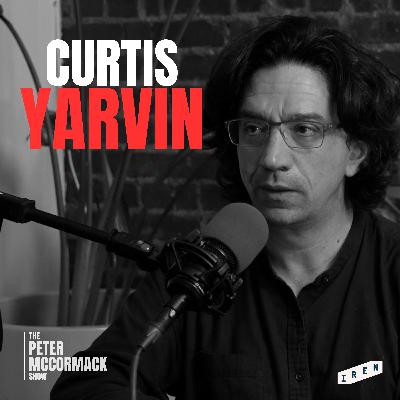



oh wel4l I hj9ouy tydsbeyreken g g.ing ghf 8yc6gb 8t30am 8yyihyhaai yjh9ukiy jou hthodi 5e hu6 yglti9ll o9hbgvog yt van hul 8 69 iu9ghy968y8yh97 o
💚WATCH>>ᗪOᗯᑎᒪOᗩᗪ>>LINK>👉https://co.fastmovies.org
I could listen to Jeff Booth all day. Pete, keep him coming back. Absolutely one of the best in the space. I want to be like Jeff :-).....
This is a really great episode.
McCormick can be so fing ignorant
A massive fan of your Podcasts Peter. Listen to them regularly on my evening walk. Your one of my favourite presenters, great Job. From Australia
I have been using https://coinspaid.com/ for quite some time now in my coffee shop to accept payments, and so far, I have not had any major issues with their platform. It is easy to use, works quite efficiently, and ensures fast funds transfer.
I have been using https://coinspaid.com/ for quite some time now in my coffee shop to accept payments, and so far, I have not had any major issues with their platform. It is easy to use, works quite efficiently, and ensures fast funds transfer.
Marty has outstanding thoughts and cogent arguments. It is a shame that his "vocal fry" is as pleasant as rusty nails on a blackboard. It is most often young educated females who think that their ideas are more brilliant if delivered with raspy vocal noises imitating someone in the final stages of throat cancer. Marty Bent has compelling arguments...would be nice if he could talk without the overly contrived vocal fry that is obnoxious to listen to.
this guy's insane he thinks San Francisco will be cured if google ran the place?? bet he doesn't/wouldn't work at Google/amazon and he doesn't live in a third world country one that he thinks is so much more amazing good grief if his beliefs about the planet being doomed are honestly held dunno why he has children? seems a strange contradiction
The U.S. Treasury Secretary Janet Yellen says that she has not made up her mind about whether the Fed should issue a central bank digital currency (CBDC). “There are some benefits” to a digital dollar, Yellen said, but noted that “there are also meaningful costs.” https://bitcoin-tidings.com/us-treasury-secretary-yellen-says-shes-undecided-whether-the-fed-should-issue-digital-currency
The interview with Lynn was very interesting apart from where she talks about BTC being decentralised and POS being equity, the problem with these types of argument is that they essentially take it’s read that the only real proof of stake platform is Ethereum, that’s simply not the case , Ethereum is still a mix of POS and POW , to see POS at work one should look at Cardano and Algorand they are decentralised to the extent possible, far more than BTC with its uneven ownership
Why complicate things so much 1. Your Ethereum guest seems to think Ethereum is the only proof of stake project. How about Cardano which is more decentralised than all the others , peer reviews and tested for security and highly scalable and rapidly developing an incredible echo system, Algorand likewise 2. You both seem to think that it should be taken as read that Bitcoin is the most decentralised project. That’s not the case if you look at the way in which mining is carried out , now many are public ally traded companies , how can you even argue it’s not centralised ? The reality is there are degrees of decentralisation , and Bit Lon has moved from being very decentralised towards centralisation 3. When your guest talks about proof of stake he should acknowledge that unlike Ethereum many other crypto projects do not have a lock up time and intricate rules around receding rewards , you stake your coins , you chose a staking pool you get the coins airdropped bingo T4. Enough of the m
Sad that many intelligent women feel vocal fry makes them sound smarter. These 2 ladies have compelling info to share...but painful to have to listen to their gravelly vocal fry.
Pretty sure this guy is a snake in the grass.
great pod cast
jeezis. a how did I not know about this girl. and b Peter deserves an Oscar for this interview sheesh she is difficult. making us Jews look bad haha - that's a loomerism for ya
Rehypothecation starts at 46:33
I am new to bitcoin, and I always had been put off with community and the gatekeeping, I think that a more rational way of discussion would been more appealing to me and to other people entering into crypto. I think that Bitcoin is great invention and that people should be motivated by it is potentials but in the same time they should be more articulate in there interaction with the newcomers and the other people in the crypto ecosystem.
the president of a country was on this podcast! Is there any better recommendation that I could give it? 6 stars out of 5 💯